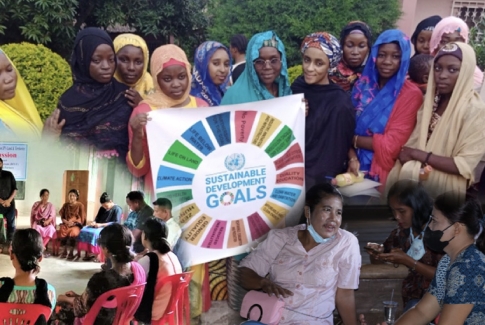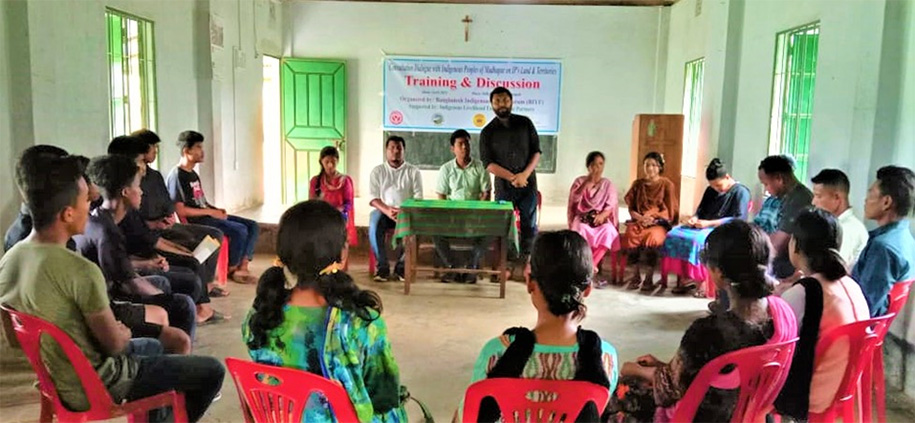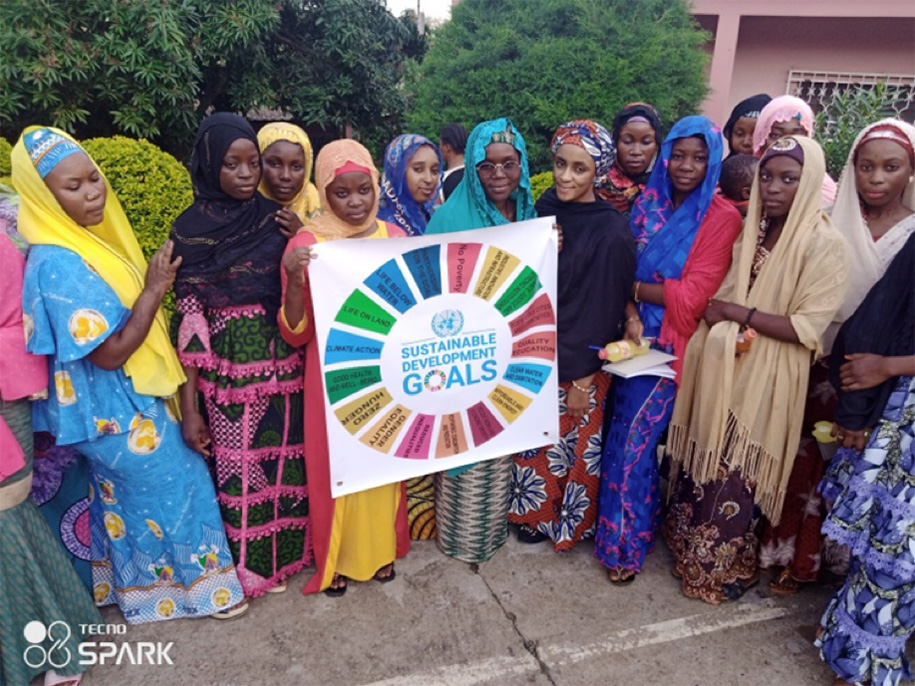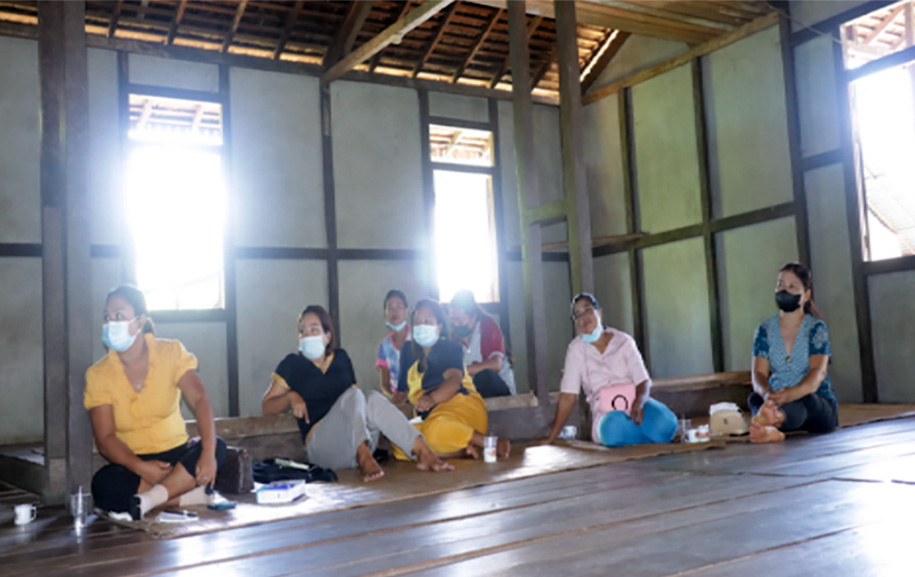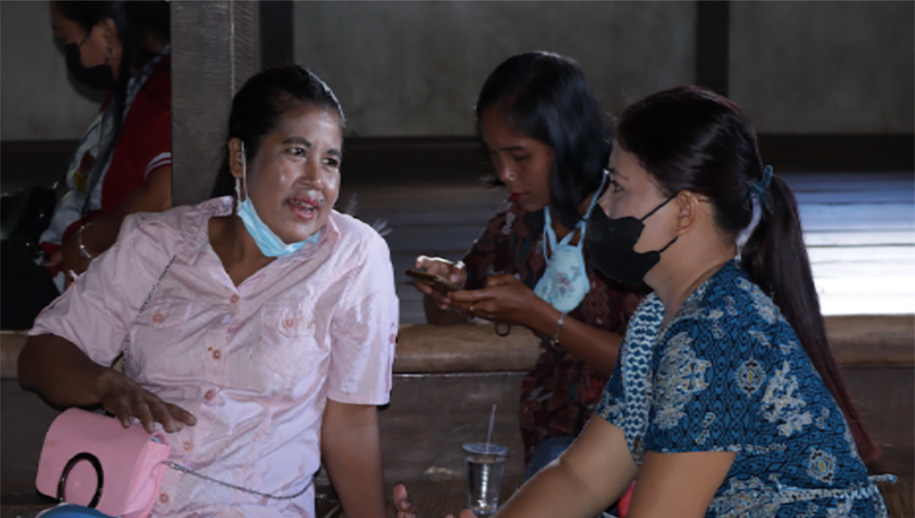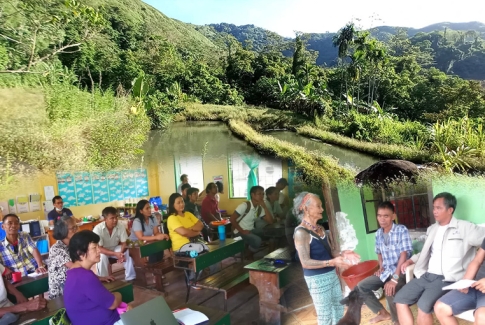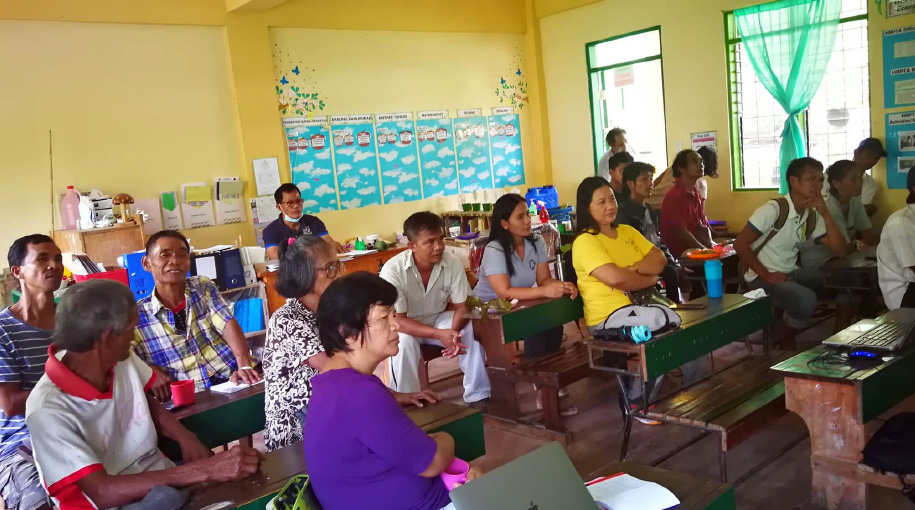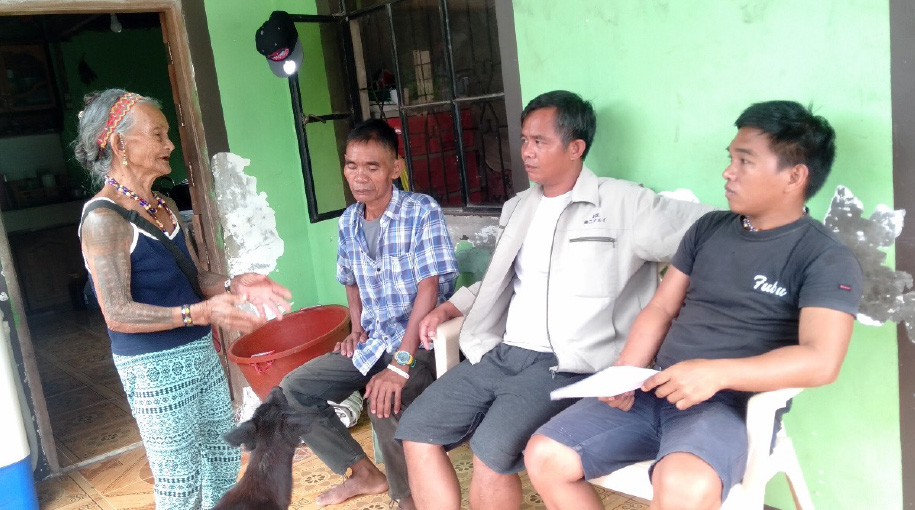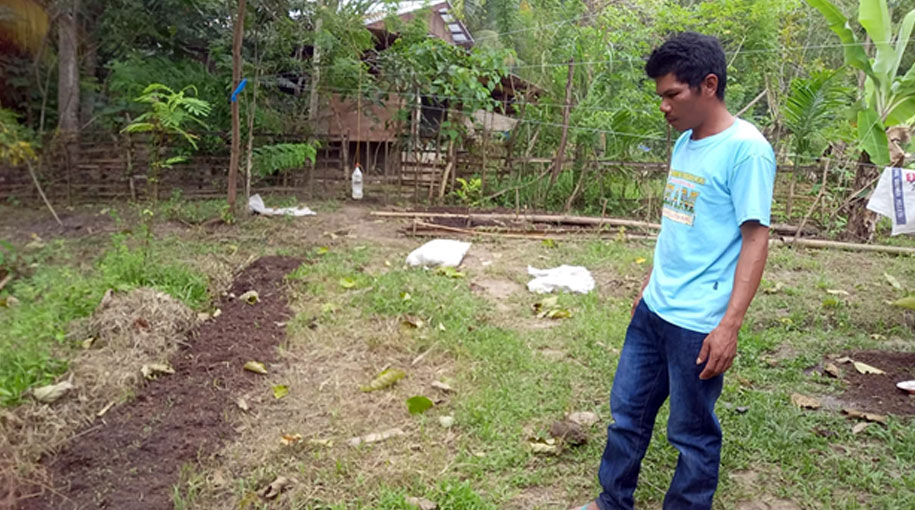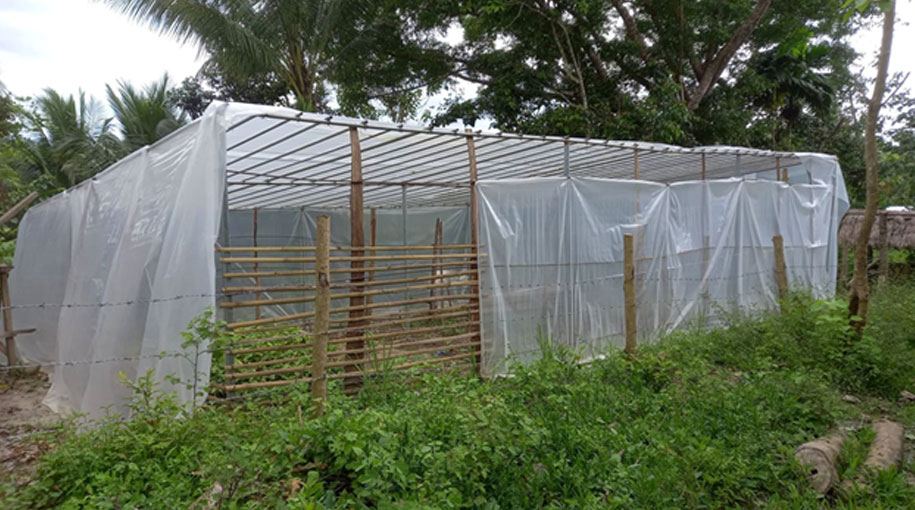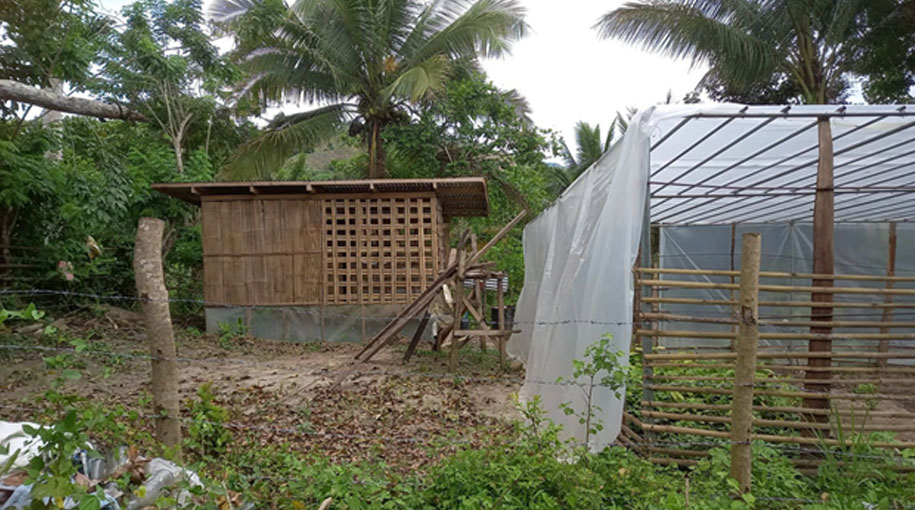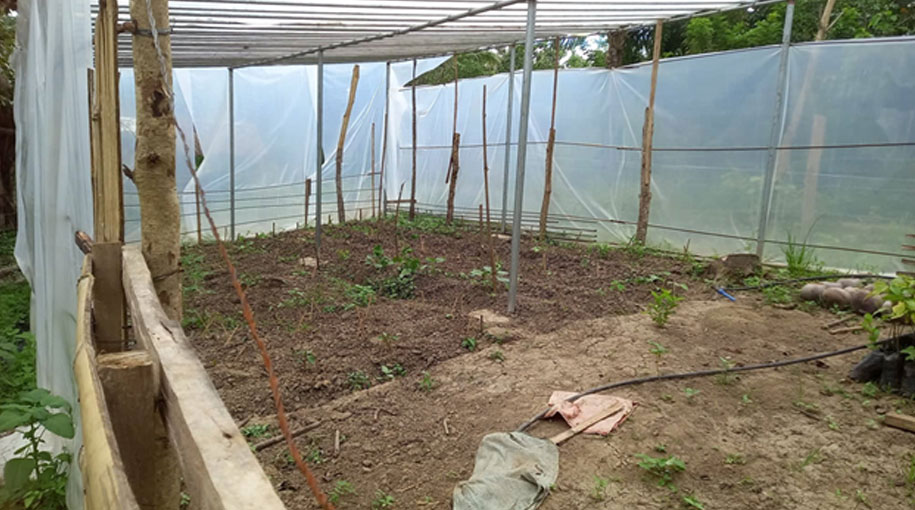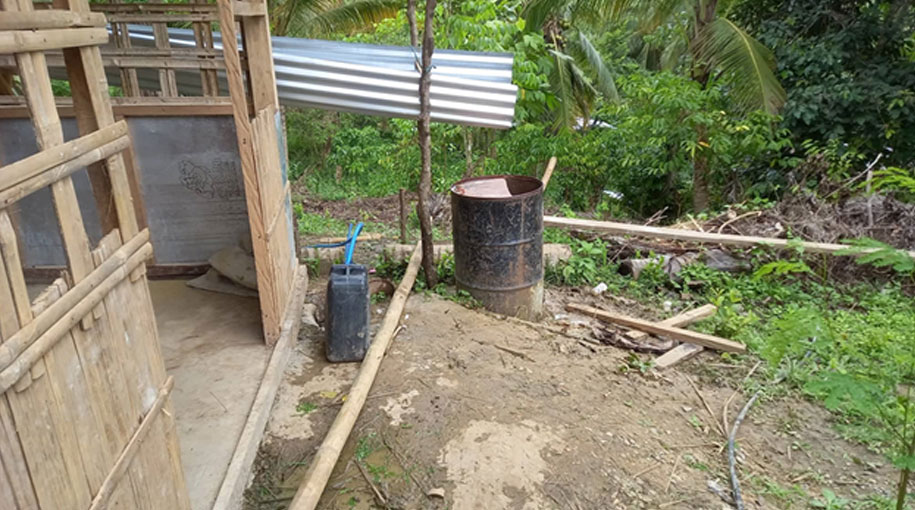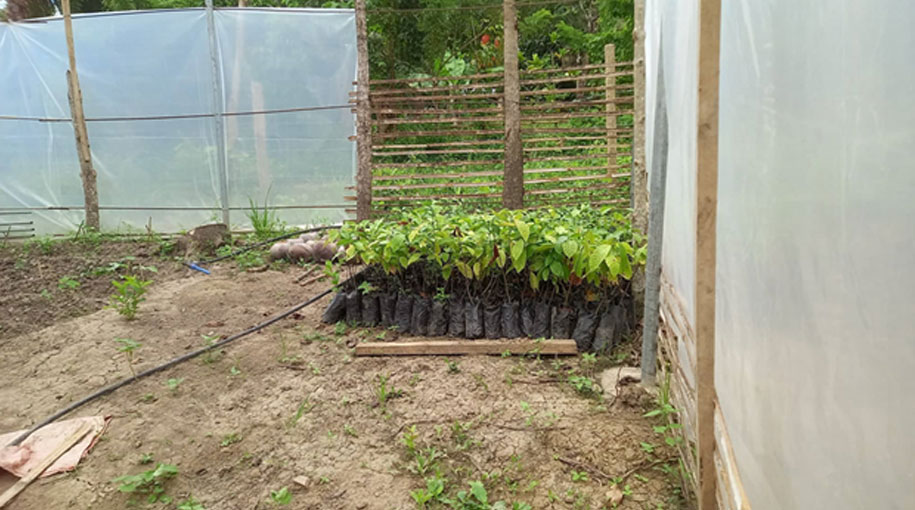Statement of Ms Victoria Tauli-Corpuz
Former UN Special Rapporteur on the Rights of Indigenous Peoples and Tebtebba Executive Director
Keynote Speaker
25th IPRA Commemoration
RA No. 8371 – Indigenous Peoples Rights Act of 1997
National Commission on the Rights of Indigenous Peoples - Cordillera Administrative Region (NCIP-CAR) Opening Program and Kapihan
4 October 2022, BIMAAK Hall, Baguio City, Philippines
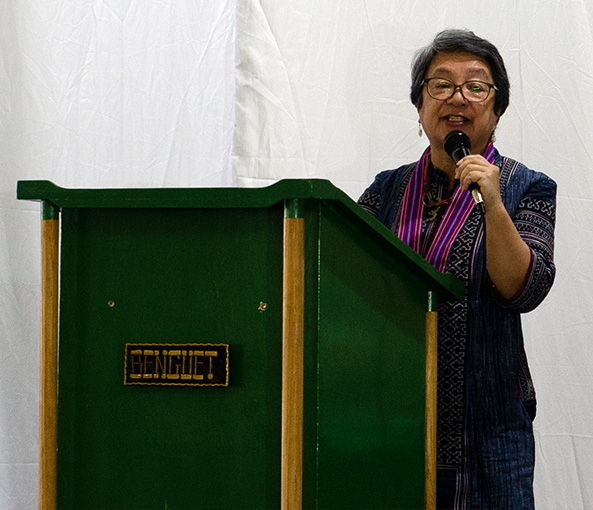 I’d like to thank the National Commission on Indigenous Peoples (NCIP) for inviting me to speak to you today. Gawis ay wakgat tako amin [Good morning to you all]. It’s an honor to be able to play the role in the celebration of the October Indigenous Peoples Month in the Philippines. It’s always a pleasure for me to be able to share with you my thoughts as well as my recommendations on how to further improve and enhance the fulfillment of indigenous peoples’ rights.
I’d like to thank the National Commission on Indigenous Peoples (NCIP) for inviting me to speak to you today. Gawis ay wakgat tako amin [Good morning to you all]. It’s an honor to be able to play the role in the celebration of the October Indigenous Peoples Month in the Philippines. It’s always a pleasure for me to be able to share with you my thoughts as well as my recommendations on how to further improve and enhance the fulfillment of indigenous peoples’ rights.
Basically, I will focus first on what I see as the remaining challenges for indigenous peoples in the Philippines and, of course, in many other parts of the world and, then, I will talk about the opportunities that we have as well as some of my recommendations.
As Commissioner Gaspar Cayat said a while ago, there are four bundles of rights that are recognized under the Indigenous Peoples Rights Act (IPRA). I really recognize—thank you so much that we have the IPRA which, for me, is one of the best national laws on indigenous peoples. I have been involved in the drafting of the United Nations Declaration on the Rights of Indigenous Peoples (UNDRIP) until its adoption in 2007. The IPRA came into being even before the Declaration but a big part of the IPRA has really been culled from the drafts of the UNDRIP. So, it thus contains the international standards—the minimum international standards—that should ensure the recognition and the dignity and the welfare of indigenous peoples all over the world. We should really value IPRA as best as we can—memorize it by heart—because this is the main tool that will allow us to further empower our own communities and, of course, ourselves.
Now, let me just walk you through some of the challenges that I still see. Earlier, Commissioner Cayat mentioned about the continuing discrimination against indigenous peoples. Maybe not very much in the Cordillera Region but in many parts of the Philippines, this is still a situation. Even during the COVID pandemic up to now, many indigenous peoples were not able to benefit from the needs to address this problem.
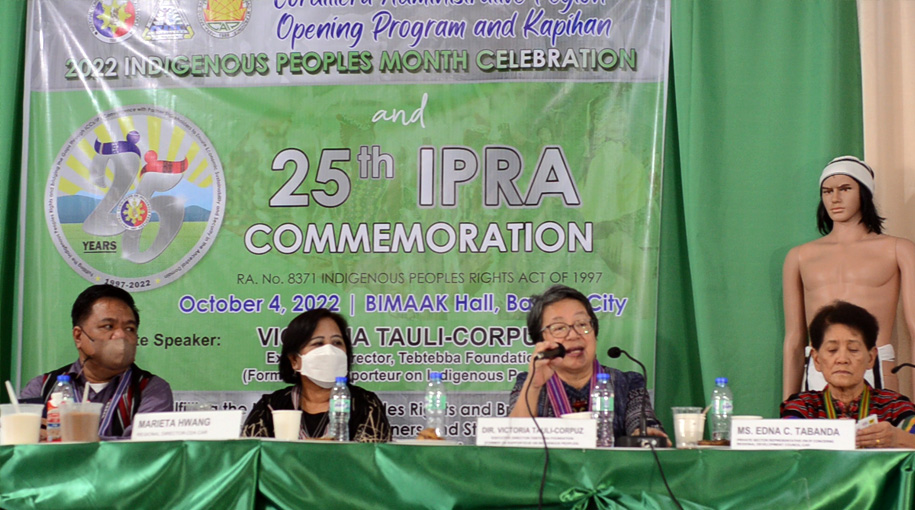
The discrimination also continues—some of you might have seen a letter of the former Chairman of the NCIP [from 2007 to 2010], Eugenio A. Insigne, when he criticized strongly an article written by Ranhilio Callangan Aquino who used to be the Dean of the San Beda College of Law, where he (Aquino) said that we should be very thankful to our colonizers and we should not romanticize the indigenous peoples because they have a very bad record of warring with each other—they ruthlessly enslaved other tribes, the weaker tribes and, sometimes, they ate their enemies after beheading them.
This was an article that was published in The Manila Times on September 14, 2022. So, can you imagine a lawyer—a dean of a law school—who still talks in that way? I cannot believe that this kind of thinking and outlook still continues. It does not say very much about how even our intellectuals are educated about indigenous peoples and yet we know that indigenous peoples in the Philippines were—we are considered indigenous peoples. Even if all of us are considered indigenous Filipinos, we are indigenous peoples because we fought against colonization and we maintain our pre-colonial culture, our governance systems and knowledge systems which sets us apart from the dominant populations who were colonized by the Spaniards and having gone through this colonization definitely has changed their cultures unlike us who still maintain a lot of our cultures, our diversity and our knowledges.
Letter of Eugenio A. Insigne to the Editor of The Manila Times on 30 September 2022, protesting Ranhilio Callangan Aquino’s article that was posted on 14 September 2022.
You know, this 2022 to 2032 is the International Decade of Indigenous Languages and this is proclaimed by the United Nations General Assembly (UNGA) precisely because, out of the remaining 6,000 languages in the world today, 4,000 of these languages are spoken by indigenous peoples. The same thing in the Philippines, we have more than 160 languages and 99 percent of these are spoken by indigenous peoples. So, we provide the country’s linguistic and cultural diversity because language is not about speaking—it also speaks about your identity, your cultures, and the knowledge that is expressed through language. So, those kinds of contributions should never be underestimated or undermined. So, this statement by Aquino is really something that should be criticized strongly. I would suggest that the NCIP also writes an official letter to condemn those kinds of statements.
Secondly, we also have the bundle of ancestral domains and ancestral lands. We know that this is what most indigenous peoples are aspiring for—that we will be able to protect and continue to reside in our ancestral territories. Our identities, in fact, are very much linked to the places we come from. For instance, I am from Besao, from a particular barrio that we call Payew. My father and mother are from there. So, we call ourselves i-Payew—and that is the identity that we carry aside from our linguistic identity, Kankanaey. So, those are the things that we value so much and, therefore, we should continue enhancing and protecting these languages and cultures.
And the lands that we come from—these are some of the most threatened lands in the Philippines. You know, if you’ve ever seen the map that was done by the Department of Environment and Natural Resources (DENR), they have a map that overlays the lands in the Philippines which have the most biodiversity and, in the map—they also have a map which shows the ancestral domains of indigenous peoples, and there is a coincidence—all the areas which have the richest biodiversity are the indigenous peoples’ territories. So, that is another contribution that indigenous peoples give not only to the country but also to the world in general.
The scientists in the Climate Change Convention (UNFCCC) have established that 80 percent of the world’s biodiversity are found in indigenous territories. Indigenous peoples occupy only 20 percent of the entire lands of the world and we are only five percent of the world’s population. But that kind of contribution is sometimes forgotten so we have to keep reminding ourselves that those are the things that continue to exist because we protect them and defend our territories from destructive agri-business expansions, destructive mining as well as big infrastructures, and that remains to be a problem because those people who are defending their lands are actually subjected to the worst kinds of human rights violations.
A data at the Global Witness which is an international organization recording the people who have been killed, the land defenders and environmental defenders, shows that in 2021, there were 200 land and environmental defenders killed with almost four people each week and they identified which countries were the highest—Mexico was the highest with almost 54 killings, then Brazil and India, then Colombia, and the Philippines was the fourth, unfortunately, although it dropped. In mid-2020, there were 30 land defenders killed [in the Philippines] and it dropped to 19 in 2021. The finding also says that among those 200 killed, 40 percent of these were indigenous peoples. One out of ten were women and two-thirds of these women were indigenous.
So, that’s the kind of situation that indigenous peoples face as we are talking right now but, of course, it’s a good change that the number of killings of indigenous peoples has decreased in the Philippines. Still, we need to continue protecting human rights.
Those are just a few of the things that we see in the world as well as in the Philippines. The ancestral domains remain threatened. While we have the IPRA, the protection of these ancestral lands is still very much at risk.
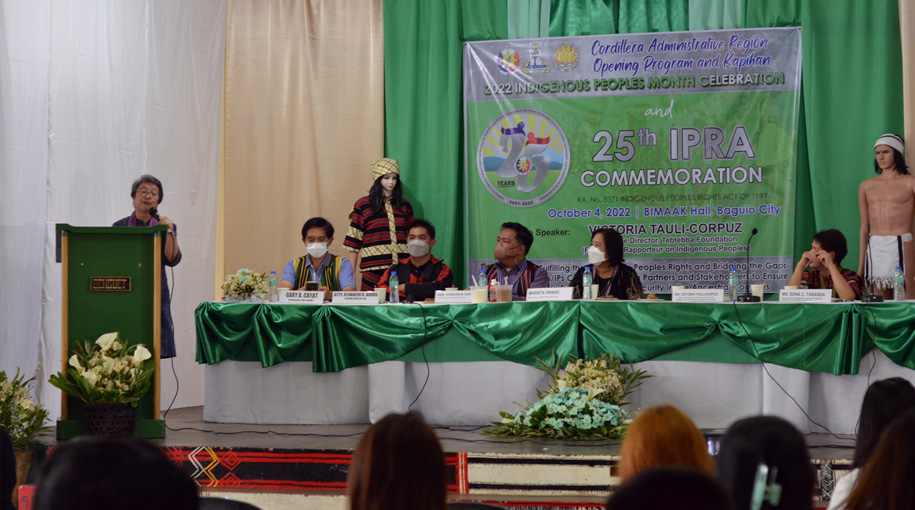
So, what are the opportunities that are perceived? Of course, the IPRA is a big opportunity—the fact that IPRA is mandated to do ancestral domain titling and ancestral land titling is a very big thing. The fact that the world is slowly recognizing our contributions is another thing. Now, we have the UNDRIP; we have the UN Permanent Forum on Indigenous Issues (UNPFII) which is the highest body in the UN that deals with indigenous peoples’ issues which is a body that I chaired for six years; we have the Expert Mechanism on the Rights of Indigenous Peoples (EMRIP) under the Human Rights Council which is looking at how indigenous peoples’ rights are being respected; and, finally, we have the Special Rapporteur on the Rights of Indigenous Peoples (SRRIP) that is a role that I played for six years as well where my mandate was to look at the situation of indigenous peoples, to enter into dialogue with governments, and to make reports of what I saw to be the burning issues of indigenous peoples. These are the bodies that exist internationally.
At the Climate Change Convention, they also recognized the indigenous knowledge that has contributed to climate change mitigation and adaptation and they established a platform called the Local Communities and Indigenous Peoples Platform (LCIPP) for sharing of traditional knowledge on climate change mitigation and adaptation. For this year, we have somebody who sits there (Facilitative Working Group for the LCIPP) who is from the Philippines—she is from our office, Tebtebba.
In the Convention on Biodiversity (UN CBD), they also have a working group on indigenous knowledge and that is actually the working group that is being used to strengthen how the indigenous knowledge systems are being enhanced and not destroyed or undermined.
Of course, we have other bodies like the Working Group on Business and Human Rights which has voluntary guidelines that looks at how businesses are affecting people and one part of that looks at indigenous peoples and how businesses are affecting them.
So, we have these mechanisms which indigenous peoples can use and you can actually take part in the meetings of these various bodies. There is a UN Voluntary Fund that you can apply for, that will allow you to take part of these meetings that are held in Geneva or in New York. Actually, this is something that the NCIP hasn’t taken advantage of very much—they should. You should because you are an official body of the government and you can go there as the government. So, that is one of the opportunities.
Of course, there are still many other opportunities considering the fact that indigenous peoples have also strengthened their own governance systems. We were talking earlier about self-governance and, you know, as a rapporteur, I have traveled in many parts of the world to do official visits and I’ve seen how autonomous municipalities were really very vibrant. Even if they did not have the regions but they had the municipalities—in Mexico, in Ecuador—and the municipalities were run by indigenous peoples themselves. They ran their own schools. They used their traditional knowledge. Even their justice systems, they used it very extensively.
In fact, there was a place in Mexico that I went to where indigenous peoples—you know, they were always beset by the drug lords, by the drug syndicates. So, many of their children were being recruited as drug mules and their communities were also being deforested by the drug syndicates. So, these people became so angry—the women organized themselves and blockaded the trucks bringing out the wood from the forest and, then, they declared the government that was existing at that time as a government that was not serving their purpose. So, they drove away all the municipal officials and they asserted that they will choose their own officials. So, they elected their own officials. They put them into the municipality and, then, the government filed a case against them. They were the Purépecha people of Michoacán. The people fought back and they won the case because the Constitution of Mexico recognizes that the indigenous peoples have the right to govern themselves.
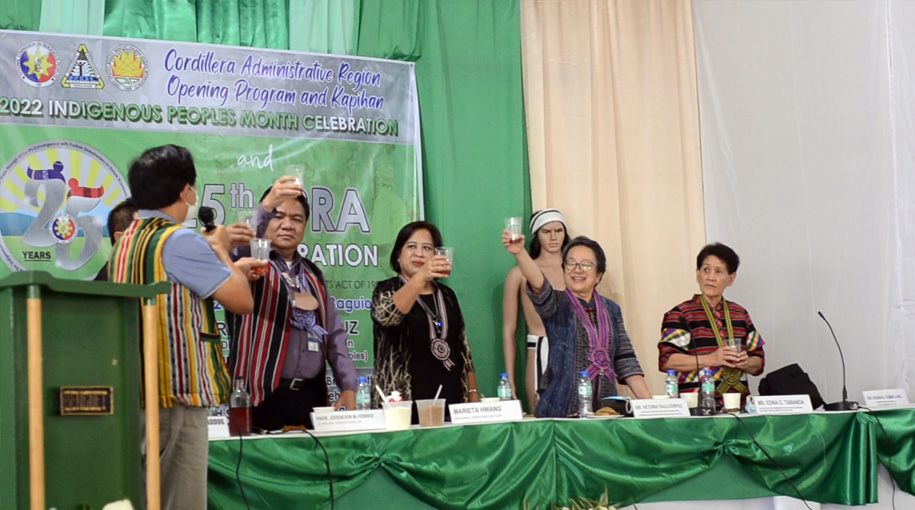
So, when I talked with the government, I said, “You know, I met these peoples and they told me these stories. Is it true?” and they said, “Yes, it is true,” and they claimed that they (the community) were better managed now—they are protecting their resources and they have better welfare, among others. “Do you also confirm that?” I asked and they said, “Yes.” So, I said, “You know, that’s why autonomous municipalities or villages should really be supported and that’s an opportunity that we have here.
Of course, in the Cordillera—because we are still fighting for autonomy and I think that the fact that many government agencies are here, we should really understand how autonomy can really be a good thing for all of us, not just for the indigenous peoples but for the government agencies as well. We know that there are a lot of stories about how autonomy is bad but we need to disabuse our minds of some of these false news because, as I say, many of the autonomous municipalities I saw were managed and governed in a much better way than the other communities. In fact, they were the ones who have maintained the highest levels of biodiversity and cultural diversity. So, that’s the other thing about self-governance—it’s an opportunity and our law recognizes that.
And then, of course, we have the whole issue of justice and human rights. We still need to continue educating, making ourselves aware of the human rights of indigenous peoples and we, in Tebtebba, have also been engaging in these community-based dialogues under the Commission on Human Rights (CHR) together with the military and the police because there are communities that we work in which are being red-tagged or labeled as terrorists and we said that “Why don’t we go there and talk to the communities?” and the CHR as well as the army and the police, we are all going there in November (2022). Edna (Tabanda) is one of the members of this community dialogue and I think that’s the way to go.
Really—and this is my final word—I think the way to go is really to empower ourselves, empower our own local communities, ensure that democracy continues to prosper in our communities; ensure that women become part of the governance system; the youth are also brought in to participate and the elders, of course—the role of elders should also be respected.
I have seen a school in Bendum in Bukidnon which is run by the people themselves and is also helped by the Jesuits, and the elders were the ones teaching the children their chants, their songs, their stories, their myths, and it was encouraging to see the little children doing what the elders were teaching them. So, we should respect our elders and continue to respect the knowledge and the wisdom that they can share with us.
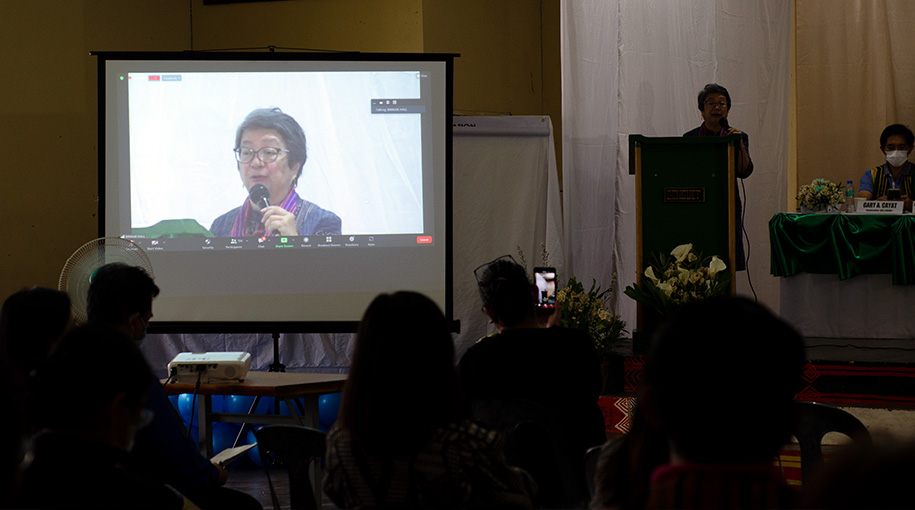
So, I think, this whole issue of empowerment is the key and, in Tebtebba, we have promoted a framework called the Indigenous Peoples Sustainable Self-Determined Development (IPSSDD) which converges the human-based approach; the environmental sustainability as well as the economic sufficiency; of course, gender sensitivity, interculturality as well as intergenerational exchange and transmission of knowledge. This framework is what we use to train our partner communities and several of our communities here in the Philippines, we have been working with them. So, that’s something that we can also offer and we know that in NCIP, you have your Ancestral Domains Sustainable Development and Protection Plan (ADSDPP).
So, maybe we can have an exchange to find the best practices that emerged from us trying to empower our communities, helping them to develop and to implement their own sustainable development plans, monitoring the changes that are happening over time—that’s an important part of the work that we do, so we do evidence-based research in terms of how the Sustainable Development Goals (SDGs) are being implemented—how many have their own water systems; what are the health systems that have been integrated into indigenous health practices; of course, the equality between men and women, among others. All the SDGs that have been adopted globally, we want to see them implemented at the local level as well.
I think, we have a lot—we are doing a lot and now that I am seen this event being attended by a lot of government agencies, I would like to end by saying that the convergence and the coherence among the various government agencies in terms of the roles that you play in fulfilling the rights of indigenous peoples is really the key to this. And I’m happy to see that there are many government agencies who are here and we would like to see much more events like this where we can exchange our views. In fact, we have used the services of the Department of Trade and Industry (DTI) to help in strengthening the cultural artifacts, the different weaving and artwork in the communities; with the Department of Science and Technology (DOST) as well, we have been promoting strongly renewable energy resources—we have all the resources that we need to set up renewable energy and be free from fossil fuels which are the main cause of climate change.
So, there are many opportunities that are there and we can never get bored with the work that we are doing with indigenous peoples. I urge you all to continue working together, working with the civil society organizations (CSOs) and the various other interests like businesses. As I mentioned earlier, mining is the number one cause of deaths in the Philippines so we have to enter into dialogues with the mining industry, the agri-business industry, among others.
It is really the dialogue that is going to solve a lot of our problems. I don’t believe that armed conflict is going to solve any of our problems. I think that constructive dialogues with different stakeholders is the way to go and we can do this as indigenous peoples—we know what community is; we know the values of reciprocity, solidarity, heart-giving, harmony with nature, and neighborliness, among others, and we should practice all these values, transfer them to our younger generations so that our being indigenous, the values that we hold dear continue to prosper and this is going to change not just our country but also the rest of the world.
Thank you very much.
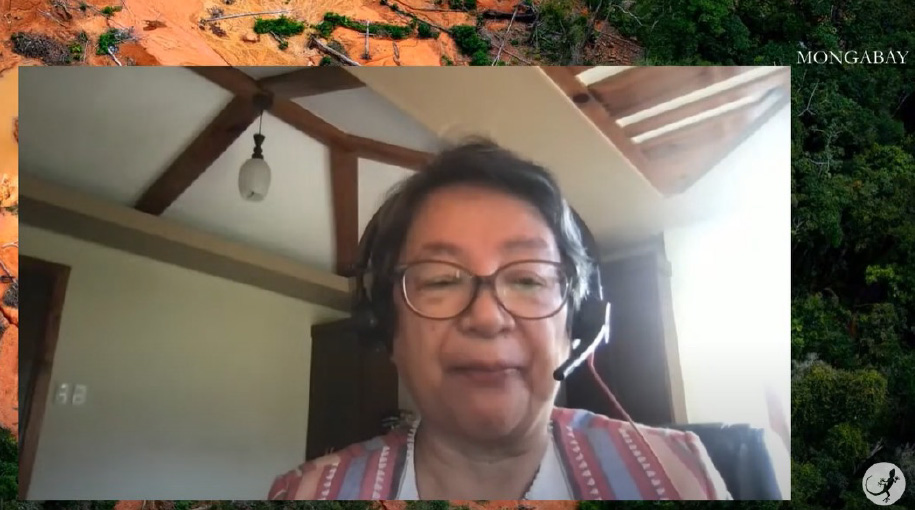


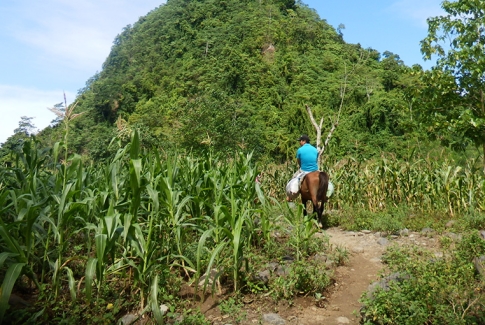
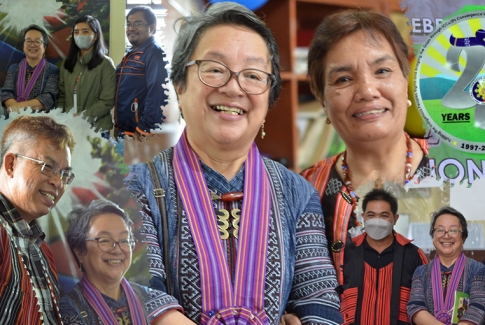
 I’d like to thank the National Commission on Indigenous Peoples (NCIP) for inviting me to speak to you today. Gawis ay wakgat tako amin [Good morning to you all]. It’s an honor to be able to play the role in the celebration of the October Indigenous Peoples Month in the Philippines. It’s always a pleasure for me to be able to share with you my thoughts as well as my recommendations on how to further improve and enhance the fulfillment of indigenous peoples’ rights.
I’d like to thank the National Commission on Indigenous Peoples (NCIP) for inviting me to speak to you today. Gawis ay wakgat tako amin [Good morning to you all]. It’s an honor to be able to play the role in the celebration of the October Indigenous Peoples Month in the Philippines. It’s always a pleasure for me to be able to share with you my thoughts as well as my recommendations on how to further improve and enhance the fulfillment of indigenous peoples’ rights.



